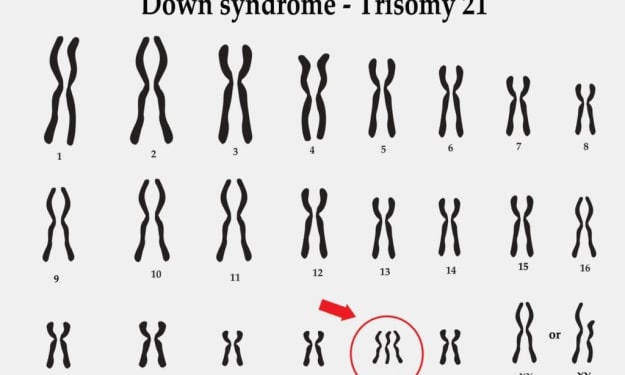Which Country is Most Likely to Use a Nuclear Bomb First
A Third World War?

Amid times of heightened geopolitical conflicts and continuously raging wars, only one nagging question arises - will nuclear war darken the future of human affairs? Most experts claim that the probability of a nuclear war today happening is higher than in was during The Cold War. The War in Ukraine and the Russia's aggressive rhetoric about nuclear weapons have made the world more worried about the possibility of an out of hand escalation. Nevertheless, an easier one is naming which country it will be starting a nuclear war as it is a very confusing and difficult job one should delve into global trends and military doctrines in order to understand it.
To fully understand the standoff of today, we must first check main parties and their nuclear powers. Nine countries are known to possess nuclear weapons: China, France, India, Israel, North Korea, Pakistan, Russia, the United Kingdom, and the U. S. These countries obtained nuclear technology via a range of ways, amongst them being their indigenous evolution to the covert procurement illustrating the variety of reasons for the quest of security.
The Cold War nuclear age began in 1945 on the day the first atom bomb was released to be eventually followed by the development of more advanced arms by the major powers like the United States and the Soviet Union. In the course of time, the number of nuclear countries increased as they were all driven by their own geopolitical factors and security concerns. Since the attempts to restrict the escalation of nuclear proliferation the Nuclear Nonproliferation Treaty (NPT) was noted to do so in 1968. Nevertheless, India and Pakistan that have never been signed to an agreement just could increase an arms race in South Asia since that region.
The issue of a country’s nuclear threat can be addressed only with a careful assessment of various aspects, which show the history of a certain country, its geopolitical environment and military doctrine.
An Israeli secret is the country's nuclear power capability, which is not yet officially recognized, but known as well as possible. With the Middle East still in tension, the Israeli nuclear posture is essentially defensive, aimed at preventing potential adversaries from attacking rather than launching a preemptive strike.
China's non-first-use policy, which implies a resistance to be the one to initiate nuclear war, sends a similar signal. While territorial disputes in the SCS and nuisances with Taiwan disconcert, China's nukes are looked upon as a deterrent force rather than a means of warfare. Nevertheless, its accumulation of weapons and modernization activities cause doubts about what it will be doing in the long term.
The biggest worries of people today are the UK's recent expansion of the arsenal and the proximity to the ongoing conflict in Ukraine. On the side of accidental launches, the stance of the UK is more of deterrence, over preemptive contracts. Nonetheless, geopolitical tensions and the changing security scenario may affect its decision-making in a way that is not predictable.
The consideration of possible first-strike scenarios is the great addition to the French’s country threat. Meanwhile, though it's nuclear posture is basiclly for self-defense, aiming at defending national interests as well as deterring aggression. On the other hand, France's assertive foreign policy and regional interests may influence its position in the crisis situations.
The already heated conflicts with India and the internal instability rise Pakistan nuclear crisis risk. Deployment of tactical nuclear weapons to be used in local conflicts might trigger a chain of escalation and result in global catastrophe. Besides, Pakistan's historical dependence on nuclear weapons as a deterrent could make the crises worse.
Indian nuclear doctrine has no commitment of no-first-use, which creates disbelief about any readiness of for a fight through nuclear weapons, especially a one originated from a threat from neighbouring states like China or Pakistan. India might strikes the terror of its enemy at the same time give priority to deterrence. however,its evolving strategic environment and security challenges leave questions about its future nuclear posture.
The unpredictable nature of the North Korean leadership and the provocative behavior that the country exhibits, make it a very high-risk nation. Although maturity of its nuclear capabilities is confined, it still constitutes a substantial threat due to the dictatorial regime's violations of the international norms. In addition, dangers among misjudgment or misreading of signals would increase the possibility of inadvertent escalation.
The huge nuclear arsenal of the United States and its background of the preemptive strikes are a source of the concerns about the United States' willingness to use nuclear weapons in extreme circumstances. Deterrence is in the first place sought, though there still exists the possibility of launching wars by accident or without approval. In addition to this, the US strategic commitments and presence worldwide bring in unlikely complications in the strategic decision making of the country on the issue of nuclear weapons.
Russia's stance, which is highly aggressive, coupled with its big nuclear arsenal, makes it the most likely country to start a nuclear war. The war rhetoric and actions of Vladimir Putin’s Russia in Ukraine accentuate the trend of escalation, with catastrophic brimstone consequences for the world because of his words. Russian strategic goals and decisions elicit questions concerning the stability of the nuclear balance and raise foreign countries' anxiety.
The nuclear war is the one that the world is afraid of that is the result of geopolitical tensions, historical rivalries, and the spread of nuclear weapons. While nuclear arsenals scale down and nonproliferation measures intensify, a looming shadow of a nuclear conflict that can end the world in a big bang can not be ignored. One of the most critical issues for effective managing the nuclear dilemma is the understanding of the nuclear postures of each country (these are the factors that affect the way a state decides it will use a nuclear weapon). The world can only be saved through the combined efforts of diplomacy and strategic engagement and the prevention of the unthinkable, the nuclear war, from happening.
About the Creator
Amine Oubih
🌟Amine Oubih🌟
📝 Writer | 🎨 Creative | 🌍 Explorer
Hello,I am a traveler and writer. Whether It's Real Or Fiction, I always find something interesting to write about, and I use this content to spark the desire to learn more in readers.






Comments
There are no comments for this story
Be the first to respond and start the conversation.